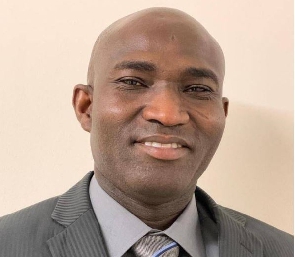The loneliest outsourcer in America works in a modest office in Burlingame.
Try as he might -- and he has tried for years -- Sambou Makalou has been unable to shift abroad more than a handful of jobs from the United States. Even though many American employers are scrambling to lower costs through outsourcing, Makalou's phone almost never rings.
The reason: He is seeking to outsource jobs not to India or China, but to the poorest region on the planet, sub-Saharan Africa.
Outsourcing is bypassing Africa south of Sahara, an area known as ``black Africa'' to distinguish it from the mostly Arab and Muslim North Africa. It is a staggeringly diverse region of about 700 million people that includes such countries as oil powerhouse Nigeria, the war-torn Democratic Republic of the Congo and AIDS-ravaged South Africa.
While there are no official statistics, the number of outsourcing projects in Africa ``can be counted on two hands,'' says Russell Southwood, a London-based consultant and publisher of a weekly newsletter on telecommunications in Africa.
Global corporations, including America's top companies, have long viewed Africa as a place to avoid unless they are hunting for natural resources, and potential outsourcers, too, are scared off by images of disease, disaster and mayhem. The region has more civil wars, for example, than the rest of the world combined. But Africa also suffers from something else: the legacy of neglecting information technologies, not only computers and telecommunications but television and radio as well.
Since the mid-1990s, however, sub-Saharan Africa has been catching up. Advances in computing and communications have been rapid, thanks to more liberalized government policies and because of sharp drops in the prices of technology gear. Today, several large African urban hubs boast burgeoning communities of plugged-in, switched-on people.
Some hope
Though problems clearly remain, Africa's technological advance provides an opening for Western outsourcers to help the region while helping themselves. While disease and unrest shape sub-Saharan Africa's present, outsourcing could help shape its future, providing a tonic effect by raising incomes, bolstering civil society and stanching the brain drain.
Other parts of the world have appreciated for decades the link between information technology and wealth creation. Forty years ago, Japan and South Korea organized government efforts to master, even dominate, new technologies. India and China established university systems to produce a cadre of engineers and scientists.
The example of Asia's success has roused Africa, where the importance of technology was long misunderstood.
Go back to the great days of African political independence, the period of the late 1950s and early 1960s, and African independence leaders can be heard discussing the need to free their economies from domination by colonial powers; the need to gain control over their basic resources and industry, through nationalization if necessary; the importance of basic education and land reform; the need for black pride and an end to racism; the role of Africa in the Cold War contention between the Soviet Union and the United States. African leaders spoke about every conceivable topic -- except the relevance of science and technology to the African condition.
But the 20th century was defined by ever-more-powerful information technologies. And as these technologies marched on, Africa seemingly slept.
Consider the experience of Ghana, the first black African country to gain independence from its colonial master, Britain. In 1995, after nearly 40 years of independence, Ghana -- with a population approaching 20 million -- had precisely 53,067 telephone lines. Only four in every 100 people had a television (the country boasted only a single television station -- owned by the government -- so why bother?). A mere 23 in every 100 had a radio (to listen to the government's two radio stations). Satellite dishes were illegal. The only way to access the Internet was to telephone London or Paris and log on.
Ghana catching up
The revolution over the past 10 years in communications, computing and media in Africa has improved Ghana's infrastructure. In the late 1990s, the government issued dozens of radio licenses, freeing the airways to become a potent force for positive change (it is widely believed that the reform government of John Kufuor was elected in late 2000 on the strength of dissent broadcast over the radio). Television was liberalized so that today three stations broadcast daily, at least in the capital.
Internet usage has soared, thanks to the spread of Web cafes, linked often by satellite to the wider world. Virtually unknown in 1999, the number of cafes in Accra, Ghana's capital, rose from 42 in October 2000 to 165 in July 2001 to 250 a year later. Today, the government believes that there are thousands of Web cafes around the country, which is about the size of Oregon.
Probably the most profound change can be credited to the mobile phone. Largely owned and operated by private business, mobile companies have created hundreds of thousands of lines in the past few years, revolutionizing social and business life.
African leaders hope that by embracing new technologies -- and the knowledge required to manage them -- they will accelerate their rate of economic growth. ``There is no information-rich country that is poor,'' says Clement Dzidonu, an adviser on technology to Ghana's government.
The technological advances, plus Ghana's large pool of relatively well-educated English-speakers, would seem to make the country an attractive site for call centers and data-processing operations. I saw the potential last year when I lived in Accra, where an American company employs 1,500 people in jobs outsourced from the United States.
Credit-card processing
Affiliated Computer Services Inc., a Dallas company that processes health-insurance, credit-card and other claims forms in Spain, the Dominican Republic, Mexico and Guatemala, also opened its first African outpost about three years ago, in Accra.
Affiliated's arrival caused huge excitement. The company operated round the clock, a first for Ghana. High-speed computers and its own satellite network enable Affiliated to ship records back and forth, cheaply and rapidly, between the U.S. and Ghana, bypassing Ghana's creaky domestic phone system. Ghana's president visited twice. The number of employees grew steadily.
Today, Affiliated processes in Ghana health-claim forms for Aetna and other large American health insurers and is probably the largest foreign employer in Ghana -- and a beacon of hope in a nation where the per capita annual income falls below $500.
Yet Affiliated remains the lone significant outsourcer in Ghana -- and even it has no plans to open another operation anywhere in Africa. While Ghana has been spared the civil wars of some neighboring nations, Affiliated finds that some of its customers forbid the company from taking any jobs to Africa out of fear of future instability. And Ghana's telecommunications infrastructure still falls short of what Affiliated needs.
In 2003, when Affiliated moved a different type of work -- a call center -- overseas, the company looked to India, citing shortcomings with Ghana's national phone carrier. Because the satellite link used for data networks causes a slight delay, voice calls are below an acceptable quality, the company says. A $650 million undersea telephone cable (known as SAT-3) links Accra with the rest of the world, but until the government-owned phone company acts, there will be no affordable, effective links between customers in Ghana and the cable.
The bottom line is, when compared to Ghana, other countries look more inviting to outsourcers.
India and China, for example, offer special services for outsourcing companies, yet African nations -- in this Ghana is not alone -- have neither created safe enclaves in which multinationals can operate nor provided the necessary training to potential workers.
African universities and research institutes, meanwhile, are mired in the past. In Ghana's leading university, the computer-science department has no online access and there are so few computers to go around that students sometimes handwrite their code with pencil and paper.
The country's equivalent of the National Science Foundation employs hundreds of scientists in agricultural and food sciences -- researchers in road building are even employed -- but zero computer scientists and electrical engineers. With the exception of South Africa, the picture in other African countries is essentially the same: Very few technically trained people graduate from school.
Outsourcing work
Still, with the squeeze on U.S. corporations to lower costs, sub-Saharan Africa would seem to have a chance to snag outsourcing business. (Besides Ghana, English-speaking Uganda, Kenya, Nigeria and French-speaking Senegal and Benin also are trying to get a share.) When I last left Ghana in November, I expected Accra to grab outsourcing work in the months ahead. The country has not.
When I met recently with Sambou Makalou in Silicon Valley, he told me: ``Africa is 20 years away from making this happen. There are real opportunities for Africa in outsourcing, but there are barriers too.''
Today, the obstacles remain larger than the opportunities, a sad reminder that in the world economy, all too often, Africa loses. And when Africa loses, other regions do, too. Clearly outsourcing cannot cure all of Africa's ills. But it could contribute to stability in Africa, and a stable Africa is in everyone's interest.
G. PASCAL ZACHARY is a writer living in Berkeley. His research in Africa was supported by the Consortium for Science, Policy and Outcomes at Arizona State University. He wrote this article for Perspective.

Views expressed by the author(s) do not necessarily reflect those of GhanaHomePage.





















